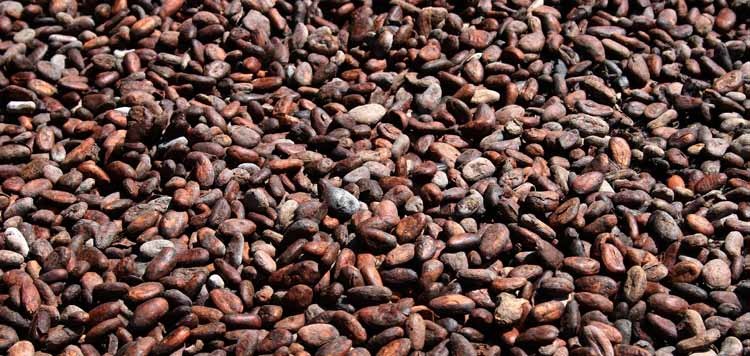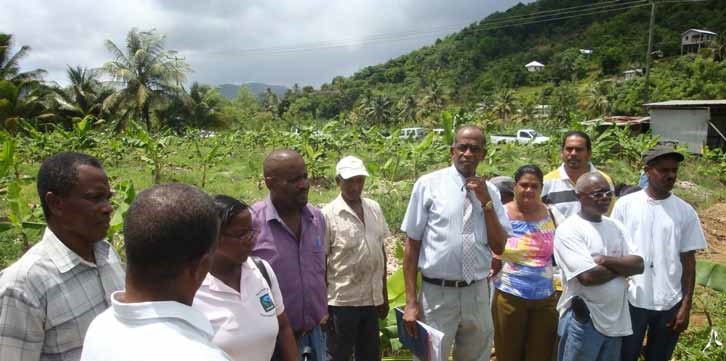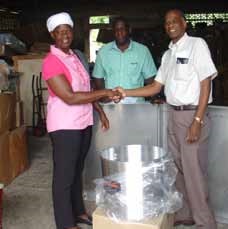The Banana Industry Trust (BIT), in collaboration with the Inter American Institute for Cooperation on Agriculture (IICA), was awarded a Grant Contract from the Government of Saint Lucia. IICA is a specialized agency in support of agriculture development and the rural environment with its main purpose that of encouraging and supporting the efforts of its Member States through the provision of innovative technical cooperation. This is done with the intention of achieving sustainable development in aid of the people. The bid was for the provision of funds allotted by the European Union (EU) in the amount of €2.7 million for the purpose of implementing the programme of action Banana Commercialization and Agricultural Diversification Programme under the Special Framework of Assistance (SFA) 2005. IICA’s responsibility on the project was the technical implementation of the projects, by streamlining and overseeing the production process. The financial integrity of the project was the focus of the Banana Industry Trust. An array of local expertise was used so that the expertise brought in from outside the island was minimal.

SFA 2005
OverviewThe programme commenced in the first quarter of 2009 and most of its components are close to completion, with the exception of those affected by the recent destructions caused by the passage of Hurricane Tomas in 2010. Bananas have always been the most widely produced crop in Saint Lucia, with the banana industry undergoing many changes all of which have impacted the marketing, production and producers of bananas. The response therefore, to the rapid changes taking place in the industry, was the creation of several projects which have been implemented to aid in the efforts of banana commercialization.

To strengthen and revitalize the Agriculture Sector in Saint Lucia, the focus was shared with the piloting and employment of several projects by applying the Agricultural Diversification programme. Pineapple, cocoa, cassava and cut flowers were chosen as they all required varying farming techniques and supplies, locations and environmental traits and so a failure in or an economic slump affecting one of these crops would not be disastrous overall. Cocoa was the first choice for expansion and growth with the rising excitement around the health benefits of cocoa and the many benefits of the crop to the environment.
Since many of the existing banana farmers were originally Cocoa farmers before the shift in the industry, a lot of focus was directed towards the assistance of re-emerging cocoa farmers. The majority of the funding went to projects aimed at education, increase production through the rehabilitation of 200 acres along with 100 new acres allotted for inputs, and the construction re-fitting of a microfermentary. The main theme around the projects was the rehabilitation of the crop and expansion of the cocoa industry.
The peak potential in the marketing and tourism community locally provided an excellent framework of opportunities in the direction of the cut flower and pineapple crop development. In both cases an assessment of the industry was completed and demonstration plots were initiated to establish innovative solutions to various spots in the trade. Training and inputs were also made available to the suppliers through the projects.
The Banana crop was chosen for mainstay with the development of the industry. The focus of the implemented projects in regard to this crop was to determine the most effective methods in removing the present constraints in commercialization.


Projects implemented for Banana Commercialization support included:
- Farm Waste and Disposal System
- Scheduling and Forecasting Production System
- A Management System and establishing of a management unit and provisional of equipment to combat black and yellow sigatoka disease.
- The establishment of three (3) Demonstration Plots to exhibit multiple cropping alongside bananas
- The supply of equipment to farmers to ensure Global Gap compliance in production practices.
The overall agenda put Fair Trade farmers and services in the spotlight. It was foreseen that the implementation of these projects would significantly assist the agricultural industry to remove the constraints towards development. By being involved throughout the working chain and not merely a link along the way, IICA and BIT jointly made a lasting impression within the respecting industries and the agricultural sector at large.
